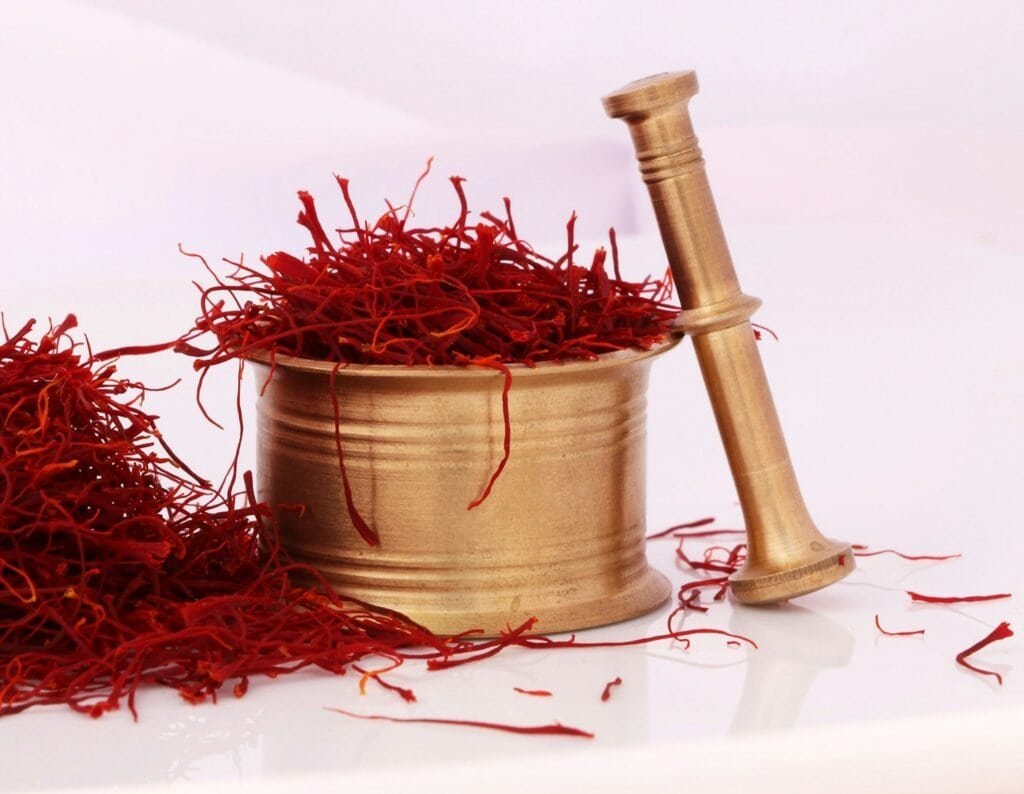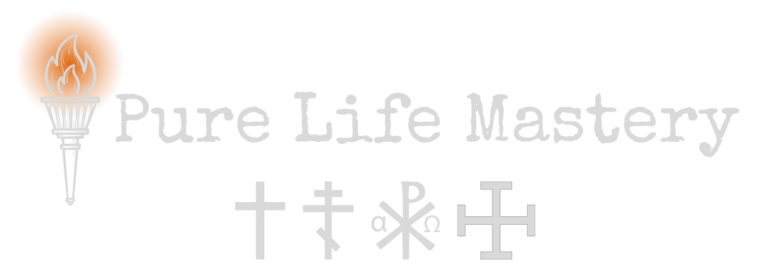A start to the day that fixes my focus.
Anyone who knows me knows that I’m more of a tea drinker, but there is one cup of coffee I have every day to jumpstart my morning. This is not just any regular cup of coffee—this is a superfood beverage designed to help facilitate better focus throughout my day.

This is not a magical elixir, and I’m not going to promise miracles. However, there are compelling studies for each one of these ingredients that I’m going to share with you. Basically, this is a superfood morning beverage that combines all of the components to not only help with general health but also give us the highest advantage in focus—especially for those of us who might struggle without relying on some of the more popular medications.
The Ingredients
Coffee (2 tablespoons)
You can use just about any coffee that you like. I’ve settled on a Guatemalan blend from Aldi as my daily driver, but anything from Catholic Coffee Company is always invited. On days when I don’t want to use too much caffeine (because that can actually thwart focus as well) I go with Everyday Dose coffee replacement (not an affiliate – just one I like). However, this is not necessary; any regular ground coffee works great.
Research shows that caffeine may improve sustained attention in individuals with ADHD. A study published in Scientific Reports found that caffeine intake of approximately 2.0 mg/kg significantly improved hit rates in sustained attention tasks in children with ADHD (https://www.nature.com/articles/s41598-020-70416-9). The l-theanine and caffeine combination was found to decrease task-related reactivity and improve performance in visual sustained attention tasks.

Cayenne (a pinch)
I always put a pinch of cayenne on top of the grounds in my coffee filter. I use a regular pour-over, and a pinch is usually just enough to give my coffee not only a nice kick of flavor but real health benefits. Cayenne has proven anti-inflammatory properties, improved digestion, and potential heart health support.
Studies on capsaicin—the active compound in cayenne—have shown remarkable cognitive benefits. Research published in Acta Neuropathologica Communications demonstrated that capsaicin consumption reduced brain amyloid-beta burden by 32.3% and rescued cognitive decline in mice (https://www.ncbi.nlm.nih.gov/pmc/articles/PMC7370188/). The capsaicin-treated mice showed improved spatial learning ability and better memory consolidation. Additional research in Frontiers in Cellular Neuroscience found that capsaicin treatment for 12 weeks significantly alleviated cognitive deficits and improved brain function (https://www.frontiersin.org/articles/10.3389/fncel.2022.842789/full).
Turmeric (1/8 teaspoon)
A fantastic antioxidant and anti-inflammatory, turmeric is an excellent addition to use in combination with these other ingredients. One-eighth of a teaspoon is plenty enough. There’s a lot of strong evidence that inflammation is one of the components that, if not causal, exacerbates ADHD and focus symptoms.
Curcumin, the active compound in turmeric, has been shown to improve cognitive performance in multiple studies. A systematic review published in Naunyn-Schmiedeberg’s Archives of Pharmacology examined curcumin’s potential for ADHD and found that animals treated with curcumin showed less anxious and hyperactive behavior and improved spatial memory (https://pubmed.ncbi.nlm.nih.gov/35465860/). Another study in the International Journal of Molecular Sciences demonstrated that curcumin influences cognitive behavior, learning, and memory formation in neurodevelopmental conditions including ADHD (https://pubmed.ncbi.nlm.nih.gov/34299037/). A 2025 meta-analysis found that curcumin supplementation significantly improved global cognitive function, with an optimal dose of 0.8 g/day for at least 24 weeks (https://pubmed.ncbi.nlm.nih.gov/38975096/).
Be sure not to use too much, as it can cause digestive issues and heartburn, which is a bad mix when using coffee.
Saffron: My Secret Weapon

Multiple large cohort studies have been done on saffron and mood, and I find the evidence very compelling that it, in some cases, outperforms SSRI inhibitors and other similar drugs. Because of this, it was recommended to me for potential use during severe ADHD spirals, and I have to tell you that it has worked. Now it’s part of my everyday routine.
A groundbreaking study published in the Journal of Child and Adolescent Psychopharmacology compared saffron to methylphenidate in children with ADHD. Over a six-week trial, children who took saffron capsules experienced similar improvements in attention, hyperactivity, and impulsivity as those taking the pharmaceutical medication (https://www.ncbi.nlm.nih.gov/pmc/articles/PMC9505128/). The study found that while methylphenidate tended to be more effective for inattention, saffron tended to be more effective for hyperactivity. Another randomized controlled trial confirmed that short-term therapy with saffron capsules showed the same efficacy as methylphenidate in children with ADHD, with similar safety profiles (https://pubmed.ncbi.nlm.nih.gov/30918012/).
Unlike other medications, there are no side effects, but there are no definite upswings that are noticeable. The best way I can always explain it is that at the end of the workday, I notice that the day was productive. I don’t necessarily notice as the day is occurring; it makes a subtle difference, which leads to profound progress.
When these two kitchen spices are in the cup, I splash the smallest amount of hot water on them so that they can blossom before pouring coffee into the cup.
Dark Chocolate (Optional but Recommended)
I don’t want to say this one is optional, but sometimes I forget to put it in. I’ve tried both putting cocoa powder in the filter with the cayenne and coffee, while other times putting a small piece of dark chocolate (must be 75% or higher) in the cup of coffee itself.
Research validates some impressive benefits of daily dark chocolate consumption. A randomized controlled trial published in Food Science & Nutrition found that middle-aged adults who ate dark chocolate daily for four weeks reported less fatigue and showed improved executive functioning, including problem-solving and focus (https://onlinelibrary.wiley.com/doi/10.1002/fsn3.3145). They also demonstrated improved memory and increased gray matter volume, which is an important indicator of brain function.
Another study in Nutrients with 98 healthy young adults found that 35g of 70% dark chocolate improved verbal episodic memory two hours post-consumption (https://www.ncbi.nlm.nih.gov/pmc/articles/PMC7071243/). Dark chocolate is rich in cocoa flavanols, which have been shown to improve processing speed, executive function, and working memory. Additionally, dark chocolate increases brain blood flow, fights inflammation, and boosts levels of brain-derived neurotrophic factor (BDNF), a protein that helps neurons grow.
How to Make It
I make the coffee like any other pour-over carafe. Here’s the process:
- Place 2 tablespoons of coffee and a pinch of cayenne in your pour-over filter
- Add 1/8 teaspoon turmeric and a few threads of saffron to your cup
- Splash a small amount of hot water (195 degrees) on the spices in the cup
- Let the spices sit and blossom
- Pour the hot water over the coffee grounds in the filter
- (Optional) Add a small piece of dark chocolate to the cup or cocoa powder to the filter
- Add your milk or cream of choice and either monk fruit or maple syrup to taste
At first, I didn’t know how I would feel about putting everything like this in one drink. Now, not only do I look forward to the benefits each day, but I actually enjoy this drink being a part of my morning routine and have acquired quite the taste for this turmeric saffron coffee.
Studies
- https://pmc.ncbi.nlm.nih.gov/articles/PMC7817283/
- https://pmc.ncbi.nlm.nih.gov/articles/PMC7359297/
- https://www.nature.com/articles/s41598-023-35234-0
- https://www.frontiersin.org/journals/cellular-neuroscience/articles/10.3389/fncel.2022.822702/full
- https://pmc.ncbi.nlm.nih.gov/articles/PMC10057869/
- https://pubmed.ncbi.nlm.nih.gov/35185656/
- https://www.sciencedirect.com/science/article/pii/S0753332224009752
- https://www.frontiersin.org/journals/psychiatry/articles/10.3389/fpsyt.2022.813545/full
- https://www.news-medical.net/news/20230328/Capsaicin-and-its-health-benefits.aspx
- https://www.nature.com/articles/s41598-020-70037-7
